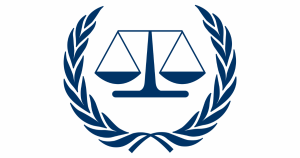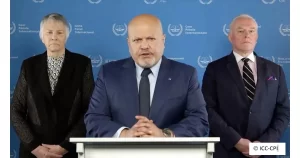Articles
Scientists: Climate change worsened Eastern Africa drought
AP News, 27 Apr 2023
The ongoing drought in Eastern Africa has been made worse by human-induced climate change, which also made it much likelier to occur in the first place, an international team of climate scientists concluded. The report Wednesday came from World Weather Attribution, a group that seeks to quickly determine whether certain extreme weather events were influenced by climate change. Nineteen scientists from seven nations assessed how climate change affected rainfall in the region, analysing historical weather data, including changes in the two main rainfall patterns in the region alongside computer model simulations dating back to the 1800s. After their research and comparisons, they called the region’s experience with drought “one of a kind.”
Climate change: Satellite maps warming impact on global glaciers
BBC, 26 Apr 2023
Europe’s Cryosat spacecraft tracked the 200,000 or so glaciers on Earth and found they have lost 2,720bn tonnes of ice in 10 years due to climate change – the equivalent to losing 2% of their bulk in a decade. The study, reported on Wednesday in the journal Geophysical Research Letters, has applied this approach to the spacecraft’s entire data archive to produce a global glacier assessment. The satellite’s observations indicate the vast majority – 89% – of the ice loss seen between 2010 and 2020 was due to melting in an ever-warmer atmosphere. Monitoring how quickly glaciers are changing is important because millions of people rely on them for drinking water and farming.
From ER visits to homelessness, here are 4 ways climate change is expected to affect children
CBS News, 26 Apr 2023
Climate change affects the weather, the air we breathe and the stability of our surroundings — and children’s health is especially vulnerable to the poor air quality, longer allergy seasons, infectious diseases and extreme heat that make climate change a public health threat. Children who aren’t White are more exposed, according to a new report published Tuesday by the Environmental Protection Agency. The report encouraged parents and caregivers to educate children on climate-related health threats and to encourage children to speak up when they’re feeling uncomfortable or unwell. Here are four ways a warming planet will affect — and in some cases, already is affecting — children, according to the report.
Recent, rapid ocean warming ahead of El Niño alarms scientists
BBC, 25 Apr 2023
This month, the global sea surface hit a new record high temperature. It has never warmed this much, this quickly. Scientists don’t fully understand why this has happened. But they worry that, combined with other weather events, the world’s temperature could reach a concerning new level by the end of next year. Experts believe that a strong El Niño weather event – a weather system that heats the ocean – will also set in over the next months. Warmer oceans can kill off marine life, lead to more extreme weather and raise sea levels. They are also less efficient at absorbing planet-warming greenhouse gases.
Guinea-Bissau Joins Landmark UN Agreement
VOA, 25 Apr 2023
Guinea-Bissau has become the first country outside of Europe to join an international agreement on government accountability, human rights and the environment, the United Nations announced on Tuesday. The Convention on Access to Information, Public Participation in Decision-making and Access to Justice in Environmental Matters – also known as the Aarhus Convention – “protects every person’s right to live in an environment adequate to his or her health and well-being”, according to the UN.
Indigenous leader from Brazil wins top environmental prize
Al Jazeera, 24 Apr 2023
Alessandra Korap is one of six recipients of the 2023 Goldman Environmental Prize for grassroots activism. Korap and other Munduruku women during years took up the responsibility of defending their people, overturning the traditionally all-male leadership. Organising in their communities, they orchestrated demonstrations and presented evidence of environmental crime to Brazil’s attorney general and federal police. And they vehemently opposed illicit agreements and incentives offered to the Munduruku by unscrupulous miners, loggers, corporations and politicians seeking access to their land.




